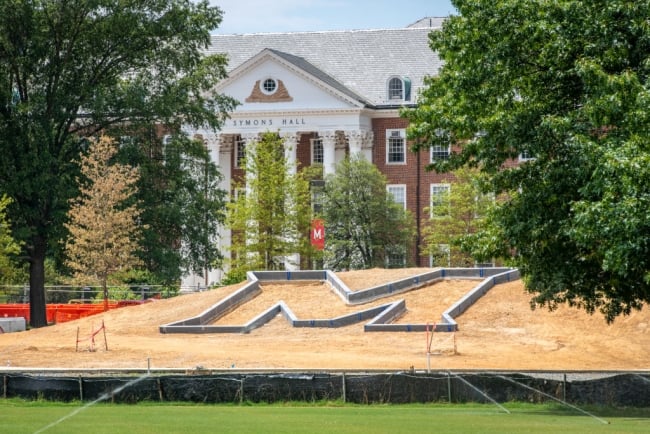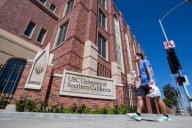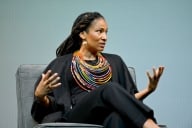You have /5 articles left.
Sign up for a free account or log in.

A federal judge has ruled that Maryland’s flagship university must allow student-led events on Oct. 7.
Edwin Remsberg/VW PICS/Universal Images Group via Getty Images
The University of Maryland will be required to host student-led events on the one-year anniversary of Oct. 7 after a federal district court ruled in favor of the local Students for Justice in Palestine chapter on Tuesday, finding that their free speech rights had been violated when they were banned from hosting an interfaith prayer vigil in remembrance of lives lost during the Israel-Hamas war.
Administrators initially granted the student group’s request to reserve campus space for the service but later withdrew permission. The revocation was “clearly neither viewpoint- nor content-neutral,” the ruling said. “It came about for reasons that the Constitution simply does not countenance: fear of disruption, and anger of opponents.”
UMD’s SJP chapter requested a preliminary injunction against the university’s decision, which U.S. District Judge Peter J. Messitte granted. But he also noted that university officials have the right to enhance campus security, ask vigil participants to identify themselves and employ “crowd-control measures.” Messitte also required the student group to post a $2,500 bond as security in connection with the event.
SJP called the decision a “historic victory.”
“We refuse to remain silent about war crimes going on across the globe,” the UMD chapter wrote on Instagram. “[And] we refuse to allow attempts to cancel our reservations to stop our message.”
The Council on American-Islamic Relations and Palestine Legal, whose lawyers helped the students file the lawsuit, said in a news release that the ruling should serve as a warning to other colleges and universities.
“If the First Amendment didn’t protect students who seek to mourn a genocide and educate the public about it, then it’s meaningless,” said Gadeir Abbas, deputy litigation director at CAIR. “Universities that have harassed and punished advocates for Palestine across the country should take note.”
Many higher ed institutions—including UMD—have been anticipating pro-Palestinian demonstrations this fall similar to those that roiled campuses in the spring. So when UMD police chief David Mitchell and president Darryll J. Pines received what they called “unprecedented,” “threatening” communications in late August about campus safety on Oct. 7, they announced that only university-sponsored events would be allowed that day.
SJP objected, filing a lawsuit against the university’s board of regents on Sept. 17. Members argued the decision was made under pressure from pro-Israel groups and violated both the First and 14th Amendments.
First Amendment advocacy groups, including the American Civil Liberties Union, the Foundation for Individual Rights and Expression and the Knight First Amendment Institute, agreed, collectively filing an amicus brief in support of the SJP chapter.
“The right to engage in free exchange of ideas on campus is not a right that can be taken away because people in power do not want to hear them,” Nick Taichi Steiner, a senior staff attorney at the ACLU of Maryland, said in a news release about the decision. “Universities must foster an environment where all students feel able to express themselves, their opinions, and their emotions. UMD denied that to the Students for Justice in Palestine.”
University of Maryland officials said in a statement that they recognize and will abide by the court’s decision; however, they noted that the safety concerns that originally led them to prohibit student-led events “remain a source of ongoing attention and focus.”
“In compliance with the court’s decision, we will now move forward with the events, addressing those concerns and challenges with care and caution,” administrators wrote. “This includes enhanced staffing and resources with a strong security presence.”








